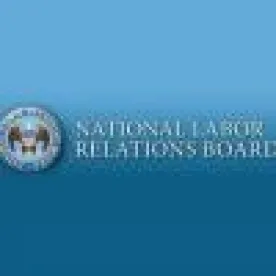Spoiler Alert – unless you regularly deal with collective bargaining agreements you may find this a tad wonky.
The National Labor Relations Board (“NLRB” or the “Board”) recently fashioned a new, business-friendly standard for determining when an employer’s action taken in reliance on contractual provisions under a collective bargaining agreement (“CBA”) constitutes a “unilateral change” in violation of the National Labor Relations Act (“NLRA”). Under the new standard, set forth in M.V. Transportation, Inc., 368 NLRB No. 66, the Board has adopted the “contract coverage” test fashioned and historically applied by the Court of Appeals for the District of Columbia. In doing so, the Board abandoned the “clear and unmistakable waiver” test traditionally applied by the Board. Under the new standard, the Board first determines if the contract provision relied on by the employer covers the employer’s action challenged by the union. If so, the Board will conclude that “the agreement … authorized the employer to make the disputed change unilaterally, and the employer will not have violated [the NLRA].” If, on the other hand, there are no provisions in the CBA that covers a disputed unilateral change, the Board then will consider whether the union nevertheless waived its right to bargain over the change. In making this latter determination the Board will continue to apply the “clear and unmistakable waiver… analysis to determine whether some combination of contractual language, bargaining history, and past practice establishes that the union waived its right to bargain regarding a challenged unilateral change.”
The practical effect of the Board’s decision here is that it removes from the equation the various factual arguments often made by unions and accepted by the Board that if an action taken by the employer was not specifically enumerated in the CBA, the employer could not undertake that action without first bargaining with the union. As the Board explained, the “clear and unmistakable waiver” standard imposed an exacting and “impossible” standard on employers, one that effectively required employers to engage in “perpetual bargaining” over contractual issues thought to have been resolved already under the parties’ labor contract. It also permitted the Board essentially to sit in judgment on contractual terms negotiated by the parties, something which the Act itself proscribes; and it undermined the very policy objectives the Act is intended to further – to encourage the process of collective bargaining, and through that process attain a labor contract that locks in and fixes the parties’ respective rights and obligations during the term of the contract.
As with other Board decisions that have issued over the term of this current administration, the Board’s decision, in this case, is in keeping with the administration’s business-friendly environment. We can expect to see other cases before the Board which likely will reverse prior Board law established during the past administration.




 />i
/>i

